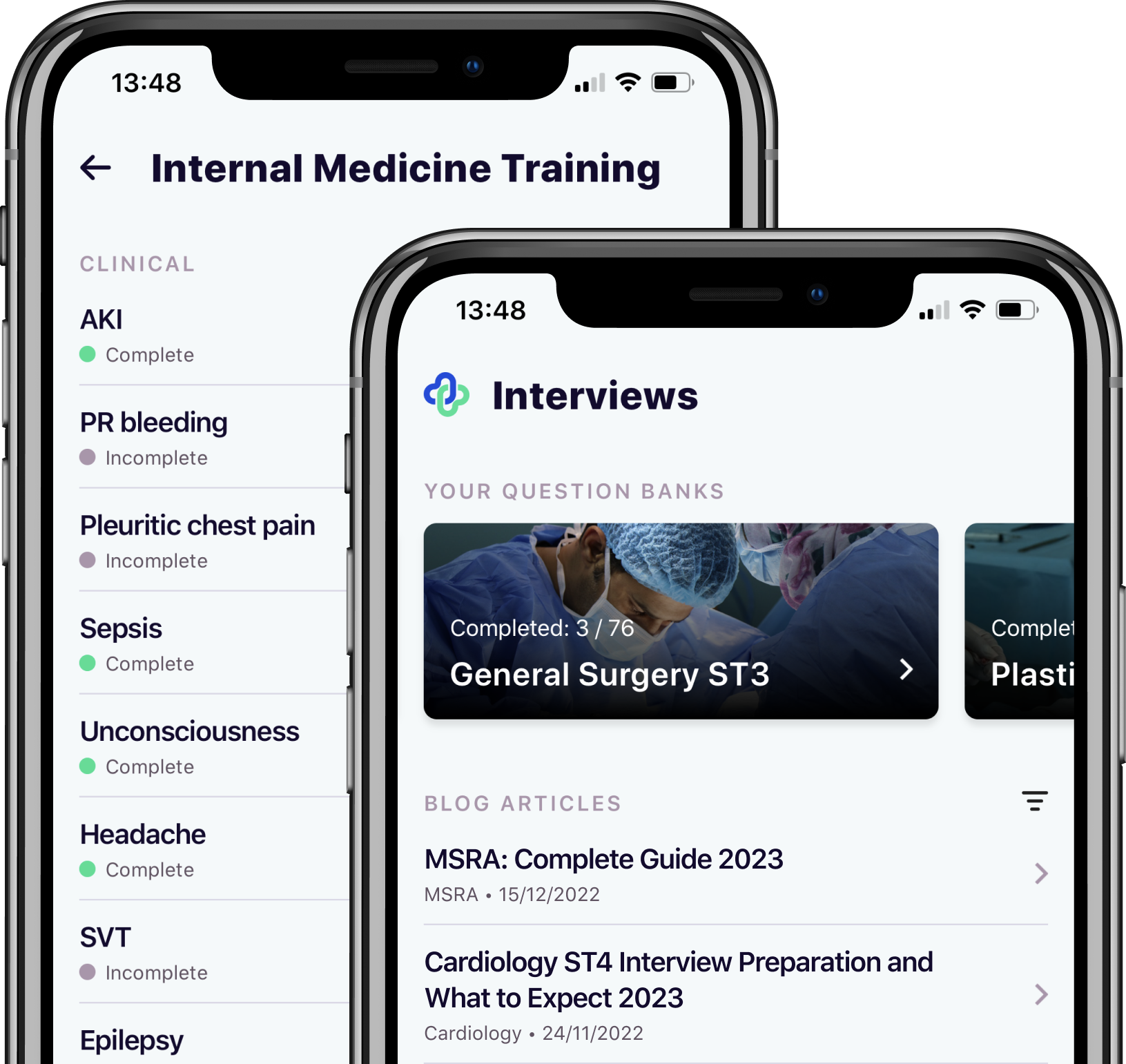
GP Stage 3 Selection Centre Tips For Success
Please note: This information is for reference only. The GP selection centre is no longer included in the selection process. Your ranking is now based solely on your MSRA score.
Take your MSRA revision to the next level with our artificial intelligence powered, adaptive question bank
Our state of the art algorithms will help you progress faster than ever.
If you’re already considering how you can excel at the GP Stage 3 Selection Centre then you are well ahead of the curve in your preparations for the GP application process! For some it may not be necessary to undertake a face-to-face assessment having achieved the magical score of 575 in the MSRA, however, don’t feel deflated if you don’t fall into this group. The Selection Centre, unlike those dreaded MCQs, is a great opportunity to demonstrate the attributes that will make you a brilliant GP. To help you prepare for the Selection Centre, we’ve produced our GPST Selection Centre Online Course.
The sheer variety of candidates applying for GP training means that each is approaching the application process with a different set of skills and experiences. Whether you are a Foundation Doctor or Registrar transferring from a different speciality, the message is still the same – preparation is key! Interviewers have no access to your CV and scoring is based purely on your performance on the day.
Some candidates may fall into the trap of thinking that the Selection Centre will merely be an extension of their everyday practice, however, a key focus within this process is the difference between how hospital doctors and GPs consult; a fact that can only be understood through adequate preparation. With competition ratios as high as 4:1 in some areas, it is important to know exactly what you will encounter on the day and how to target your preparation to showcase your suitability for the role.
Timing
Using the 2018 August Round 1 application as a guide, invitations to interview were offered no later than the 26th January with Selection Centres taking place between the 5-16th of February. This means that you may only have ten days to prepare for the Selection Centre so it is essential to use this time effectively. Furthermore, it is extremely important to check your emails regularly around this time in order to book a centre before it is full. Otherwise you may have a long journey to a different centre.
On the day
Give yourself plenty of time to get to the venue. Remember to take all the documents requested (a list is usually provided by the individual deanery on confirmation of your Selection Centre location). This usually includes but is not restricted to:
- A passport or driving license
- Your original medical qualification certificate
- A photocopy of both of these documents
It’s recommended that you wear smart clothing as you would on a day to day basis when dealing with patients.
Format
On arrival at the Selection Centre, you will be shown into a waiting room with approximately 40 other candidates and called up individually to register and check your paperwork. This is followed by a short briefing. The group is then split in two, with 50% completing the Written Prioritisation Task and 50% undertaking the Simulated Clinical Scenarios before swapping over. More information regarding these two components of the Selection Centre can be found in subsequent blog posts.
National Personal Specification
Each candidate is assessed against the National Personal Specification. Knowing this document inside out is vital to understand what is expected of you.
In brief, the following components are assessed during the interview:
- Clinical skills
- Clinical knowledge and expertise
- Personal skills
- Communication skills
- Conceptual thinking and problem solving
- Empathy and sensitivity
- Managing others and the team environment
- Organisation and planning
- Coping with pressure
- Values
- Probity
- Professional integrity
- Commitment to speciality
- Learning and personal development
Good Medical Practice
The Good Medical Practice framework produced by the GMC describes the professional knowledge, behaviours and skills expected of all medical professionals and is essential reading prior to any medical interview. There are many common themes between this document and the National Personal Specification. Sound knowledge of both documents will provide a framework for performing well in both components of the Selection Centre.
General Advice
Practice, practice, practice! People struggle at this stage if they have no idea what to expect and haven’t done the necessary preparation – you’re already at a significant advantage having read this article! There are often slim margins between candidates and even one extra point can make all the difference. Be yourself and don’t try and follow a script otherwise you will not be able to adapt to the scenario/situation or respond to individual concerns. Listen carefully to all instructions and only start the task when you are happy to do so. Lastly, remain calm. Each exercise is assessed separately, if something doesn’t go to plan try and put it out of your mind and move on to the next task.
Good Luck!
Useful Links
Example GPST Stage 3 exercises provided by the GP NRO

Take your subscriptions with you
Our mobile app allows you to access your interview and exam question banks wherever you are.





